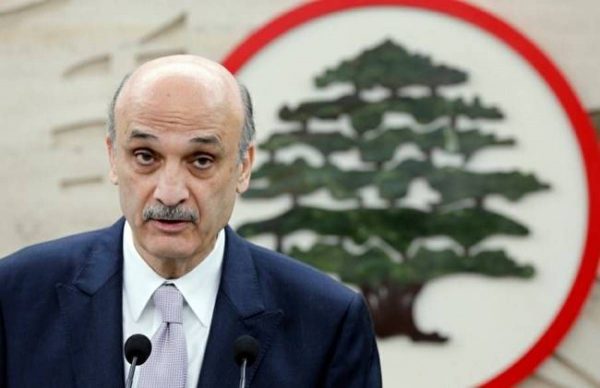Lebanese Forces chief Samir Geagea told reporters on Saturday that his party will take part in the consultations with President Michel Aoun to name a new PM in Baabda on Monday but will not participate in the new government.
He made his statement following his meeting with former MP Ghattas Khoury, adviser to caretaker PM Saad Hariri.
On the form of the new government he said: “We support a government of independent specialists because replicating the same government formulas (a national unity government) have proven useless.”
“Lebanon needs an emergency government,” he added.
For his part, Khoury told reporters: “Parties are seeking a government inclusive of partisans and citizens from the protest movement,” assuring that Hariri is seeking all means to reach a solution.
“We are seeking a new stage in which political parties and citizens who took to the streets have a role in the government,” he added.
This development comes after Free Patriotic Movement chief Jebran Bassil on Thursday announced that the FPM will not take part in any techno-political government, calling for a government led by a technocrat and comprising technocrat ministers.
Aoun is expected on Monday to begin the parliamentary consultations to name who will lead the new government after the resignation of Hariri on October 29, two weeks into the revolt.
Lebanon was swept by nationwide protests on October 17 against corruption and mismanagement demanding an overhaul of the political class.
According to The Economist, Lebanon’s dysfunction and mismanagement, a cause of the protests, has its origins in the country’s sectarian political system enshrined following the Taif agreement, which took place in 1989, almost thirty years before the 2019 protest began.
The Taif agreement enshrines a sect-based political system, where political authority is allocated based on the religious affiliation of the public servant. This system is perceived as exploited by the current Lebanese political class, many of whom are Lebanese Civil War-era sectarian warlords who still occupy positions of power and enjoy amnesty against accountability. Lebanon is a mosaic of various religious factions. It is composed of 18 different sects.


Leave a Reply
You must be logged in to post a comment.